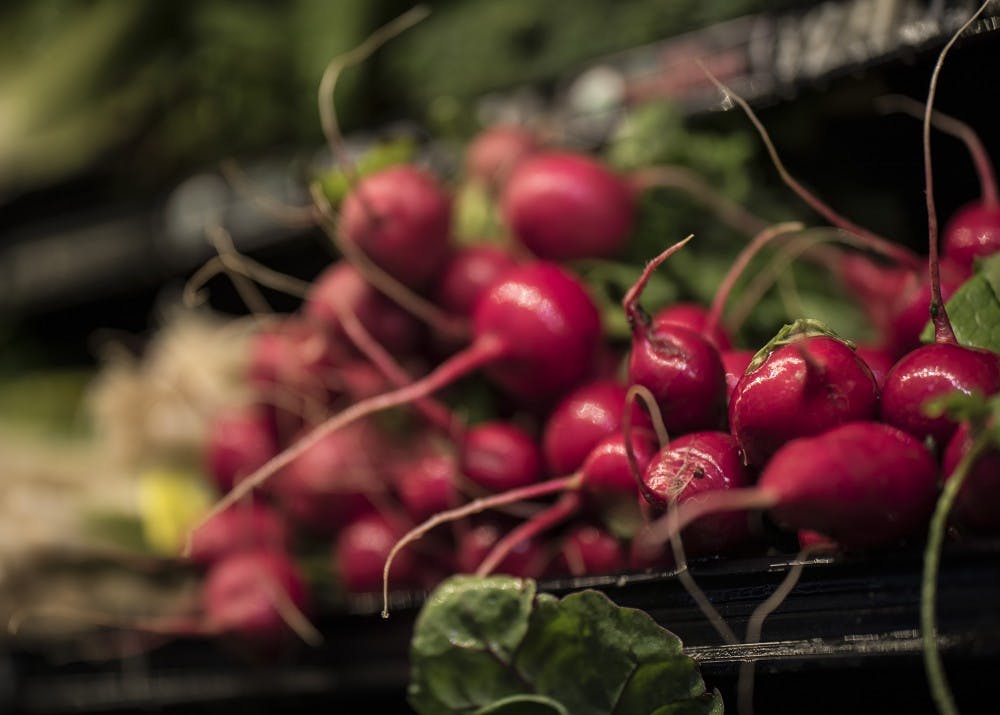Members of the IU Food Project, mostly students and faculty members, meet each month to eat a home-cooked meal and to discuss food sustainability. At last month's meeting, the group met with Rahul Shrivastav, the Director of Dining for Residential Programs and Services. Shrivastav revealed some of his goals and strategies to make IU’s dining services more sustainable, including providing more plant-based protein options and eliminating waste in dining facilities.
Each meeting allows students to eat natural food and discuss their interest in sustainability. As part of the IU Food Institute of the College of Arts and Sciences, the organization focuses on educating undergraduates about nutrition and raising awareness toward food-related social, environmental, economic and cultural problems.
A significant part of the organization is collaborating with other sustainability groups. A major partner for the IU Food Project is the Real Food Challenge on campus, an initiative which commits to serving at least 20 percent “real” food by 2020. According to the initiative website, real food is defined as fair, ecologically sound, humane or local and community-based.
“We work with many groups on campus, such as Oxfam and Fed," said Carl Ipsen, the director of the IU Food Project. "We want to encourage them, but also get them talking to each other.”
Ipsen is also the director of Collins Living-Learning Center and a professor in the IU Department of History. He has been teaching at IU since 1994. He runs the Collins Sustainable Food Committee and designed the Certificate in Food Studies, which is also a central focus of the IU Food Project.
The IU Food Project has released an annual report containing information about its accomplishments during the year, including moving into its new house on North Park Street and enrolling students in the new undergraduate certificate in food studies. It also created yearly challenges encouraging students to take simple steps promoting natural and healthy eating patterns. Last spring, for example, participants refrained from drinking sugared beverages for three weeks.
The idea to create an IU Food Project organization started in Rome when Ipsen met Alice Waters, the owner of the world-renowned restaurant Chez Panisse in Berkeley, California, at the American Academy in Rome in 2012. Waters founded the Rome Sustainable Food project at the Academy, as well as the Yale Sustainable Food Program. Ipsen returned to IU and started the IU Food Project in 2015.
Waters visited the campus in April to work with the IU Food Project, giving a lecture on campus and meeting with campus and city officials such as Mayor John Hamilton and IU President Michael McRobbie.
“Last year was big for the project,” Ipsen said, referring to Water’s visit. “It was a culmination that led to the question ‘what next.’”
The IU Food Project is answering this question with numerous initiatives this year. Next semester, Ipsen intends to invite visiting chefs to the IU Food Project meetings to give a chance for undergraduates to learn about cooking.
Additionally, Ipsen hopes to expand its connections and combine it with other IU schools. While the IU Food Institute is a part of the College of Arts and Sciences, it could be in communication with any school involving nutrition or sustainability.
“I’d like to be in full collaboration with the School of Public Health,” he said.
Shrivistav said he supports the IU Food project and is planning to be a regular at the meetings. He said the project provides students the right tools to make students understand the effects of food waste, which makes up 43 percent of total waste at IU.
“The IU Food Project is working on one of the most essential human needs,” Shrivistav said. “It has that capability of making students understand that."




